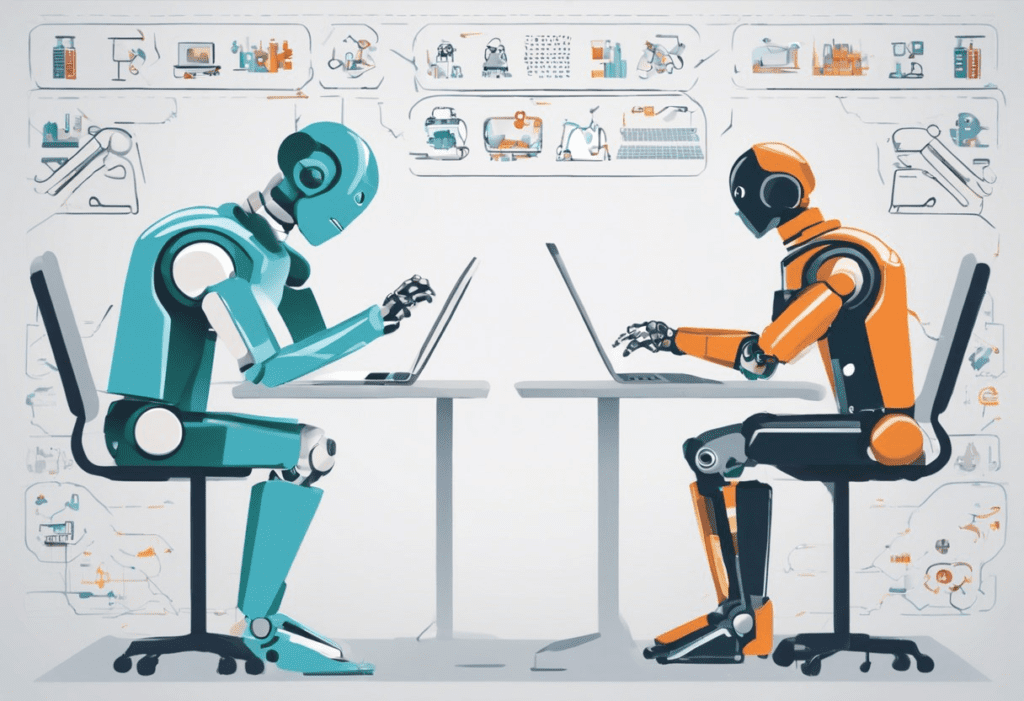Revolutionizing the Future: How Artificial Intelligence is Shaping Technology in 2025

March 29, 2025
The rapid advancements in artificial intelligence (AI) have undoubtedly shaped the landscape of technology, transforming industries, economies, and daily life. In 2025, AI continues to be a driving force behind innovation, bringing about exciting changes across sectors like healthcare, entertainment, finance, manufacturing, and more. This article dives deep into how AI is revolutionizing technology, the latest trends, and the future of AI-driven innovations.
1. AI in Healthcare: Enhancing Diagnosis and Treatment

One of the most significant contributions of AI in 2025 is its impact on healthcare. AI-driven technologies are enhancing diagnostic accuracy, streamlining treatments, and providing personalized care to patients. From AI-powered radiology tools that can detect early-stage cancer to smart healthcare apps that monitor vital signs in real time, AI is playing a pivotal role in improving patient outcomes.
For example, AI-based diagnostic tools like Google’s DeepMind have revolutionized the way doctors analyze medical images, identifying anomalies such as tumors with unmatched precision. These innovations are making healthcare more efficient, cost-effective, and accessible.
Learn more about AI in healthcare and its advancements here:
2. Autonomous Vehicles: The Road Ahead

In 2025, the world is witnessing significant progress in autonomous vehicle (AV) technology. AI-powered self-driving cars are no longer just a concept; they are becoming a reality, with companies like Tesla, Waymo, and Cruise leading the charge. The integration of AI in autonomous vehicles is making them safer, more efficient, and environmentally friendly by reducing traffic accidents and emissions.
Self-driving cars are equipped with AI algorithms that help them understand and respond to their environment in real time, improving navigation, traffic management, and even vehicle-to-vehicle communication. As these vehicles become more mainstream, experts predict that they will drastically reduce road accidents and reshape the transportation industry.
To read more about autonomous vehicles, visit:
3. AI in Finance: Shaping the Future of Trading and Investment

The financial industry has seen a seismic shift thanks to AI. In 2025, AI is revolutionizing the way people invest, trade, and manage their wealth. From algorithmic trading and high-frequency trading to personalized robo-advisors, AI is helping investors make smarter, faster decisions by analyzing vast amounts of data at lightning speed.
For instance, AI-powered robo-advisors like Betterment and Wealthfront are gaining popularity as they offer automated, data-driven investment advice, creating customized portfolios based on individual risk tolerance and financial goals. Similarly, AI is playing an essential role in fraud detection, using pattern recognition to identify suspicious activities in real-time, helping financial institutions prevent cybercrimes.
Stay updated on AI trends in finance:
4. AI in Entertainment: Personalizing Content and Experience

In the entertainment industry, AI is enhancing how consumers interact with content. Streaming platforms such as Netflix, Spotify, and YouTube use AI algorithms to recommend personalized content based on user preferences and viewing history. This personalized approach has revolutionized how people consume entertainment, with AI curating playlists, movie suggestions, and even video game experiences tailored to individual tastes.
Moreover, AI-generated content is beginning to take center stage, with AI tools creating music, art, and even writing scripts. This growing trend has opened new doors for creative industries, providing artists and producers with innovative tools for content creation.
Discover more about AI in entertainment:
5. AI in Manufacturing: Smart Factories and Automation

The manufacturing sector has embraced AI in 2025, leading to the creation of smart factories. By incorporating AI into automation systems, industries are optimizing production processes, improving efficiency, and reducing waste. AI-powered robots can now perform intricate tasks such as assembling products, packaging, and quality control with greater precision than human workers.
In addition, AI algorithms are helping manufacturers forecast demand, manage supply chains, and optimize inventory, ensuring smoother operations and reducing costs. The integration of AI into manufacturing is playing a pivotal role in creating sustainable and scalable production systems.
Learn more about AI in manufacturing:
6. The Future of AI: Ethical Considerations and Opportunities
As AI continues to advance, there are growing conversations about the ethical implications of AI technologies. Concerns about privacy, bias in AI algorithms, and the potential for job displacement have sparked debates across various sectors. The need for AI regulations and ethical AI development has become a priority to ensure these technologies are used responsibly and for the greater good.
Governments and organizations are working on frameworks to ensure that AI is developed and deployed in an ethical manner. At the same time, AI’s potential to solve some of humanity’s biggest challenges, such as climate change, healthcare, and education, cannot be overlooked.
To read more about AI ethics and regulations, check out:
7. AI and Jobs: Transforming the Workforce

While AI has the potential to automate many tasks, it also presents an opportunity to create new types of jobs and transform existing roles. In 2025, AI is being used to augment human work, enabling employees to focus on more creative and strategic tasks. For example, in fields like customer service, AI-powered chatbots are handling routine inquiries, allowing human agents to focus on more complex issues.
Furthermore, AI is also creating job opportunities in fields like data science, machine learning engineering, and AI ethics, which require a high level of technical expertise. As the workforce adapts to these changes, the demand for AI literacy and advanced skills will continue to grow.
For more insights on AI and the future of work, visit:





